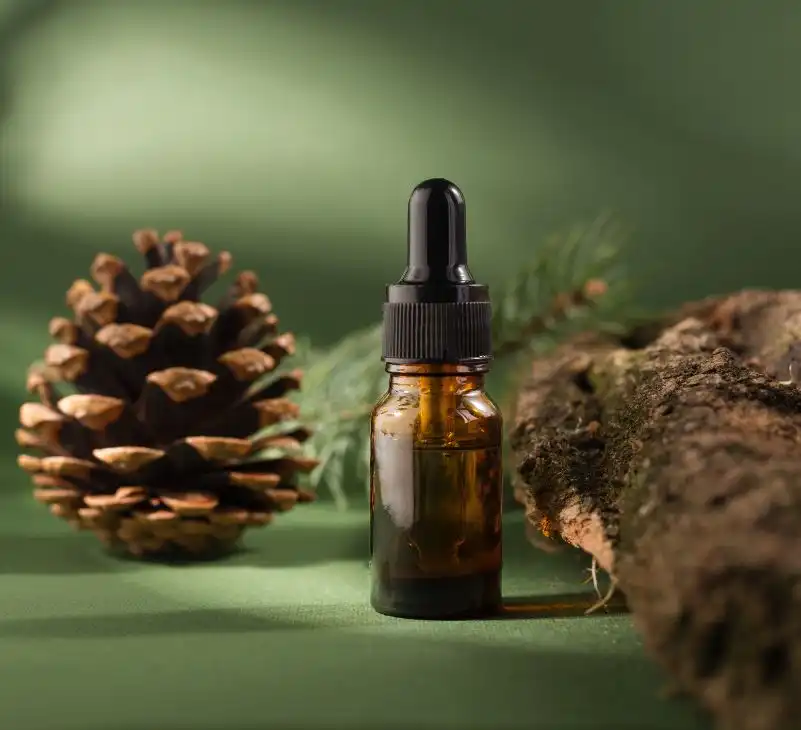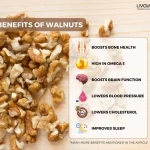
This article is reviewed by an expert
Pine bark extract, also known as PYC and Enzogenol, is a powerhouse of health benefits. From antioxidant and anti-inflammatory properties, this natural wonder has captured the attention of researchers worldwide.
Let’s dive deeper into this article to explore the extensive benefits of pine bark extract and how it can transform your health and vitality.
The Many Benefits of Pine Bark Extract
1. Antioxidant Effect (1)
Primary Benefits: Pine bark extract is a potent oxidative stress-reducing agent. It shields biomacromolecules from oxidative stress by inhibiting lipid peroxidation and protecting endogenous vitamin E and glutathione. In addition to protecting against UV damage and photoaging, PYC can defend against ROS-induced skin damage. Enzogenol, with its superoxide radical scavenging activity, surpasses other antioxidants like vitamin C and grape seed extracts.
Secondary Benefits: Furthermore, pine bark extract affects antioxidant enzymes, enhancing the levels of glutathione peroxidase, glutathione, catalase, and superoxide dismutase.
2. Anti-Inflammatory Activity (1)
Primary Benefits: Studies have shown that proanthocyanidin-rich P. radiata extracts (PAEs) enhance immune cell proliferation and induce the production of beneficial cytokines while suppressing the production of pro-inflammatory cytokines.
Secondary Benefits: PYC, a component of pine bark extract, also exhibits anti-inflammatory properties by inhibiting histamine release, reducing the expression of inflammatory factors, and downregulating genes involved in inflammation. It also shows promise in treating arthritis and asthma by reducing pain and stiffness and lowering leukotriene levels.
3. Anti-Infection Activity (1)
Primary Benefits: Studies have demonstrated that pine bark extracts inhibit the expression of essential genes involved in the life cycle of Epstein-Barr virus (EBV), leading to the suppression of the lytic cycle.
Secondary Benefits: Furthermore, pine bark extract inhibits the binding of human immunodeficiency virus type-1 (HIV-1) to host cells and hinders viral replication. This anti-infection activity may be attributed to the up-regulation of antioxidant proteins and interference with bacterial and viral adherence.
4. Anticancer Activity (1)
Primary Benefits: Pine bark extract demonstrates remarkable anticancer activity, making it a promising therapeutic lead in cancer treatment. It selectively induces apoptosis in various cancer cells, including cervical cancer and hepatoma cells, while having minimal impact on normal cells. Moreover, pine bark extract promotes cell cycle arrest in different cancer cell types, leading to apoptosis.
Secondary Benefits: Additionally, it also inhibits cancer cell migration, enhances the immune system’s function, and reduces the side effects of radiotherapy and chemotherapy. The potential of pine bark extract, particularly its proanthocyanidins, in regulating carcinogenesis and protecting DNA from damage by peroxides presents exciting prospects in the fight against cancer.

5. Cardioprotective Activity (1)
Primary Benefits: Pine bark extract, rich in proanthocyanidins, provides notable cardiovascular protection. It effectively reduces various risk factors associated with cardiovascular disease (CVD), such as blood pressure, hyperlipidemia, and platelet aggregation. The pine bark extract also improves endothelial function and shows potential benefits for systolic blood pressure maintenance and plasma protein carbonyl balance.
Secondary Benefits: Additionally, pine bark extract also exhibits potent vasorelaxant activity, benefiting hypertensive patients. It also demonstrates antidiabetic effects and is beneficial in treating chronic venous insufficiency (CVI).
6. Neuroprotective Effects (1)
Primary Benefits: Pine bark extract (PBE) demonstrates potent neuroprotective effects due to its antioxidant properties. It combats free radicals, which may contribute to brain disorders and oxidative damage in ageing brains. Studies have shown that PBE, especially in combination with vitamin C, exhibits potential as a migraine treatment. Enzogenol, a component of pine bark extract, also positively influences cognitive performance, particularly in working memory tasks.
Secondary Benefits: Additionally, PBE protects nerve cells from toxic substances like β-amyloid, reducing the risk of neurodegenerative diseases such as Parkinson’s, Alzheimer’s, and Huntington’s disease.
Also read our blog on Ashwagandha
7. Hypolipidemic Activity (1)
Primary Benefits: Pine bark extract has been found to suppress the formation of lipid droplets and reduce fatty liver formation. Studies indicate that PYC achieves this by enhancing the degradation of adipose differentiation-related protein (ADRP) mRNA, which is associated with excessive lipid accumulation.
Secondary Benefits: By targeting ADRP, pine bark extract may be useful in treating fatty liver disease and preventing atherosclerosis, offering potential benefits for those dealing with lipid-related metabolic disorders.
8. Perimenopausal Symptoms (1)
Primary Benefits: For women experiencing perimenopausal symptoms, low daily doses of pine bark extract (PYC) have shown significant improvement, especially in vasomotor symptoms and insomnia/sleep problems.
Secondary Benefits: While a placebo also had some effect, PYC demonstrated a correlation with climacteric symptoms. These findings offer hope for women seeking natural relief during this transitional phase of life.
Therapeutic Uses of Pine Bark Extract (1)
Rich in antioxidants, pine bark extract provides protection against UV damage and ROS-induced skin damage. It is also used to reduce pain and stiffness in arthritis and asthma patients, owing to its anti-inflammatory properties.
Additionally, pine bark extract also helps fight cancer and prevent viral infections. It is also highly beneficial for treating cardiovascular diseases and neurodegenerative diseases.
However, the most remarkable uses of pine bark extract lie in its ability to fight fatty liver disease and alleviate perimenopausal symptoms.
Dosage (1)
The recommended dosage of pine bark extract is 20-100 mg per day if consumed for long periods and 100-300 mg if consumed for shorter periods. However, it is advised to consult a practitioner before using pine bark extract as they can recommend the best dosage for you based on your health condition.
Side Effects & Precautions (1)
Pine bark extract is generally considered safe for consumption. However, some people have reported side effects like gastrointestinal discomfort, dizziness, headache, and nausea after consuming pine bark extract. Hence, it is recommended to take it only under the guidance of a practitioner.
The Takeaway
From antioxidant and anti-inflammatory properties to potential anticancer and cardioprotective activities, pine bark extract offers a myriad of health benefits and uses. It also helps fight off infections and alleviate perimenopausal symptoms.
However, it is always recommended to consult a practitioner before using pine bark extracts to avoid any side effects or problems.
FAQs
Can pine bark extract help boost brain health?
Yes, pine bark extract has potent neuroprotective effects that help combat free radicals and reduce the risk of neurodegenerative diseases.
Are there any side effects of pine bark extract?
Pine bark extract is generally considered safe, but some people may experience gastrointestinal discomfort, dizziness, headache, or nausea. It is recommended to always take pine bark extract under the guidance of a practitioner.
Can pine bark extract help improve heart health?
Yes, pine bark extract, rich in proanthocyanidins, provides notable cardiovascular protection by reducing blood pressure, hyperlipidemia, and platelet aggregation.
Disclaimer: The information provided here is for general information and not meant to substitute any medical advice. Please consult your doctor for appropriate medical consultation.

























5 Comments
Comments are closed.